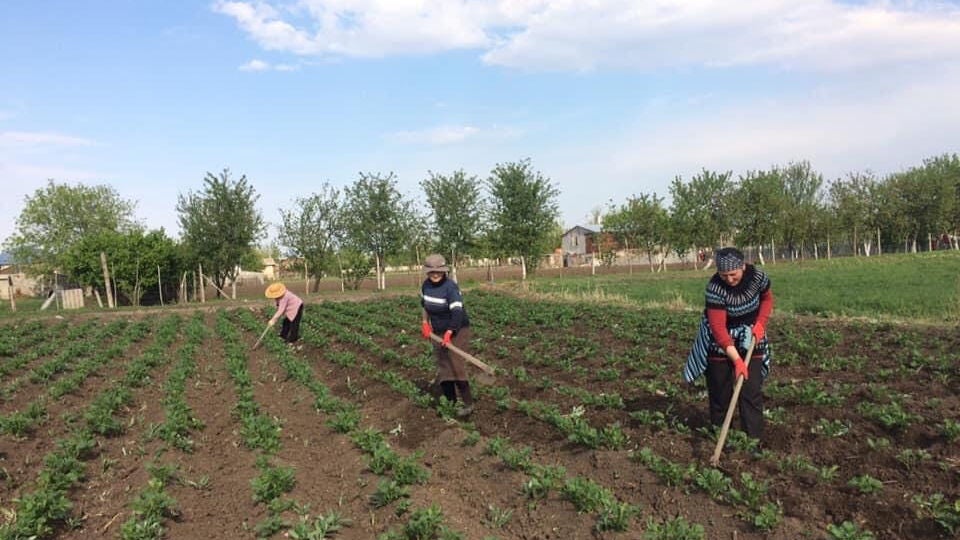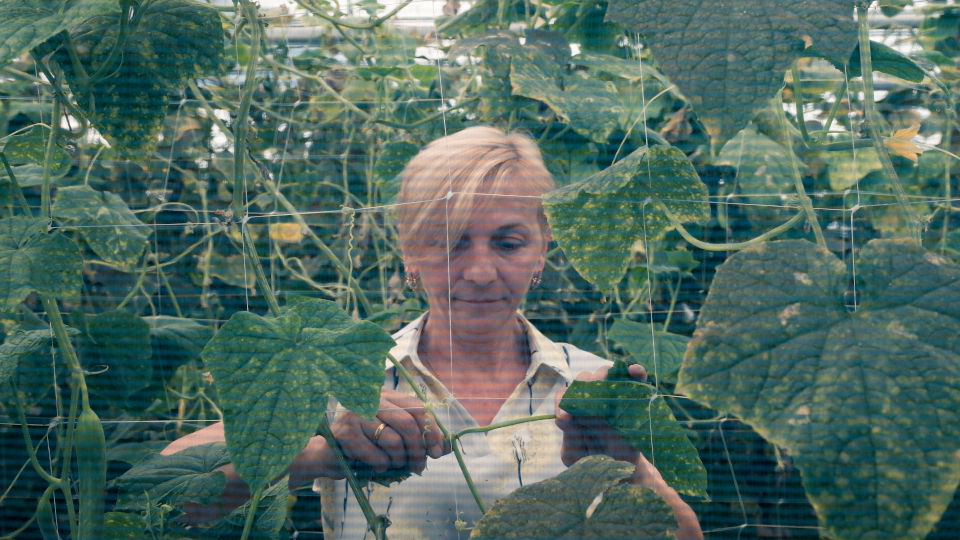In Georgia, women farmers show solidarity amid COVID-19
Date:

COVID-19 has changed the world dramatically, with particularly negative effects on women. Still, in spite of their own problems, many women are demonstrating striking examples of solidarity and compassion for others.
In early May, women from the village of Maradisi, in southeast Georgia, gained wide renown.
Naira Paksadze’s story went viral on social networks and in the media. Together with other active women, she hoed her neighbour’s potato field in order to save the family’s potato harvest. At the time, every member of the family was being treated for COVID-19 in hospital, while weeds were growing wild throughout their potato field – their only source of income.
“What else could we do in such a situation?” she says. “This was the only thing, and if we hadn’t done it, the weeds would have spoiled everything. The family will need some source of income when they recover and get out of hospital, won’t they?”
Paksadze is a 33-year-old mother of two. Since December 2019, she has acted as a community worker and led a self-help group called “Women for the Future”. She is actively involved in community mobilization efforts under a three-year UN Women regional project “Women’s Economic Empowerment in the South Caucasus”, being financially supported by the Governments of Austria and Switzerland. The project has socially mobilized 692 women in Georgia so far and aims to support over 1,000 women in the South Caucasus with income generating and entrepreneurial skills by the summer of 2021.
The municipality (Marneuli) was declared a quarantine zone and has been locked down since 23 March. The local population is mainly involved in agriculture, though the imposed state of emergency has made it extremely difficult to sell their goods. Notwithstanding this pandemic and strict quarantine, Paksadze, who herself produces lettuce and broccoli and cannot manage to distribute her own products, found a way to go on supporting locals with the help of other women engaged in social mobilization.
Initially, the women decided to assist the most-needy families. They used the money from their self-help group to buy them disinfectants and vegetables and even provided them with a one-time humanitarian donation – naturally while observing all safety guidelines, including social distancing.
Maiko Grdzelishvili, manager of the, which is implementing the project along with UN Women, says one of the aims of social mobilization is precisely to involve the local population in times of crisis – in this case, in the fight against COVID-19: “I think that our main objective and the most significant outcome is women’s solidarity – a mutual support and willingness to assist others and be charitable. Naira [Paksadze] says that this is something that women are especially good at, while I would simply add that they are just as good at that as they are at everything.”

Keti Tomeishvili, a farmer, knows from personal experience how mutual support can minimize the impact of a crisis. She runs a cucumber greenhouse and a farm. Currently, she employs four local women whose family members are unemployed because of COVID-19. Now, for every one of them, this cucumber greenhouse business is their only source of income.
At first, Tomeishvili increased the salary of her female employees. Then she gifted them one of the five greenhouses.
Tomeishvili has been involved in a different UN Women project in cooperation with the Georgian Farmers’ Association, entitled “Joint Action for Women’s Economic Empowerment in Georgia”. Between 2018 and 2020, 150were selected to take part in trainings to increase their qualifications. Some of the women even received grants. With the help of this project, Tomeishvili was able to expand her production and improve the condition of her greenhouses. This project is implemented with the financial support of the Government of Norway.
“These UN Women projects have done more than simply train and empower women economically. They have also inspired a spirit of giving back, of compassion with fellow women,” says Erika Kvapilova, UN Women Representative in Georgia. “If there are still people who think there is lack of solidarity among women, come and meet Naira, Keti and many other women living in rural Georgia! No crisis can stop them.”